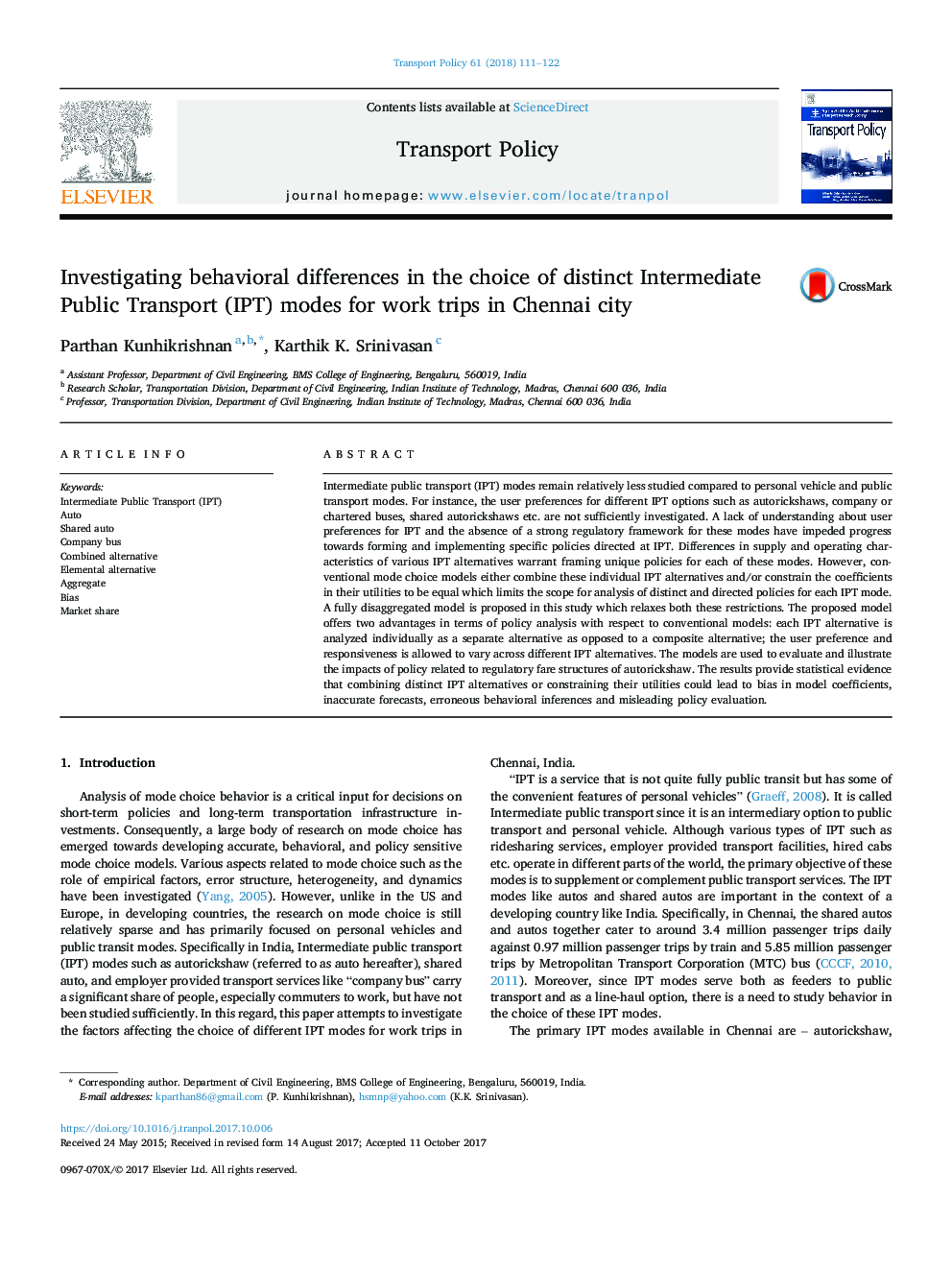| کد مقاله | کد نشریه | سال انتشار | مقاله انگلیسی | نسخه تمام متن |
|---|---|---|---|---|
| 7497276 | 1485816 | 2018 | 12 صفحه PDF | دانلود رایگان |
عنوان انگلیسی مقاله ISI
Investigating behavioral differences in the choice of distinct Intermediate Public Transport (IPT) modes for work trips in Chennai city
دانلود مقاله + سفارش ترجمه
دانلود مقاله ISI انگلیسی
رایگان برای ایرانیان
موضوعات مرتبط
علوم انسانی و اجتماعی
علوم اجتماعی
جغرافیا، برنامه ریزی و توسعه
پیش نمایش صفحه اول مقاله

چکیده انگلیسی
Intermediate public transport (IPT) modes remain relatively less studied compared to personal vehicle and public transport modes. For instance, the user preferences for different IPT options such as autorickshaws, company or chartered buses, shared autorickshaws etc. are not sufficiently investigated. A lack of understanding about user preferences for IPT and the absence of a strong regulatory framework for these modes have impeded progress towards forming and implementing specific policies directed at IPT. Differences in supply and operating characteristics of various IPT alternatives warrant framing unique policies for each of these modes. However, conventional mode choice models either combine these individual IPT alternatives and/or constrain the coefficients in their utilities to be equal which limits the scope for analysis of distinct and directed policies for each IPT mode. A fully disaggregated model is proposed in this study which relaxes both these restrictions. The proposed model offers two advantages in terms of policy analysis with respect to conventional models: each IPT alternative is analyzed individually as a separate alternative as opposed to a composite alternative; the user preference and responsiveness is allowed to vary across different IPT alternatives. The models are used to evaluate and illustrate the impacts of policy related to regulatory fare structures of autorickshaw. The results provide statistical evidence that combining distinct IPT alternatives or constraining their utilities could lead to bias in model coefficients, inaccurate forecasts, erroneous behavioral inferences and misleading policy evaluation.
ناشر
Database: Elsevier - ScienceDirect (ساینس دایرکت)
Journal: Transport Policy - Volume 61, January 2018, Pages 111-122
Journal: Transport Policy - Volume 61, January 2018, Pages 111-122
نویسندگان
Parthan Kunhikrishnan, Karthik K. Srinivasan,